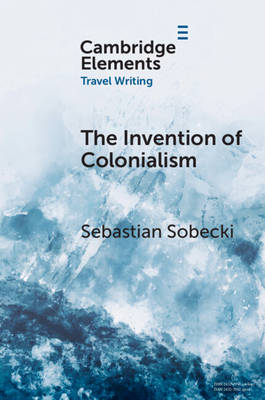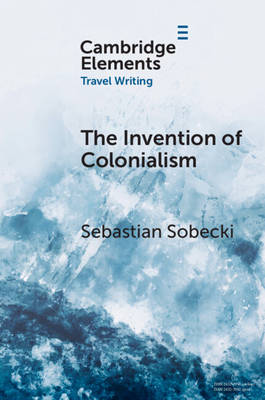
Bedankt voor het vertrouwen het afgelopen jaar! Om jou te bedanken bieden we GRATIS verzending (in België) aan op alles gedurende de hele maand januari.
- Afhalen na 1 uur in een winkel met voorraad
- In januari gratis thuislevering in België
- Ruim aanbod met 7 miljoen producten
Bedankt voor het vertrouwen het afgelopen jaar! Om jou te bedanken bieden we GRATIS verzending (in België) aan op alles gedurende de hele maand januari.
- Afhalen na 1 uur in een winkel met voorraad
- In januari gratis thuislevering in België
- Ruim aanbod met 7 miljoen producten
Zoeken
€ 24,45
+ 48 punten
Uitvoering
Omschrijving
This Element argues that it was not just the application of medieval texts by Richard Hakluyt that made them relevant for England's budding colonial ideology; rather, it shows that these premodern texts already conveyed the essence of the expansionist mercantilism and colonialist imperialism that would characterise early English exceptionalism and the Elizabethan reach for the Americas. The upshot of the author's argument is threefold. First, Hakluyt and his contemporaries were much better and closer readers of medieval travel texts than we give them credit for; second, the ideology behind English colonialism was shaped in the late medieval period, not in Elizabethan England; and third, another facet of periodisation, with its epistemological emphasis on rupture rather than continuity, comes under pressure.
Specificaties
Betrokkenen
- Auteur(s):
- Uitgeverij:
Inhoud
- Aantal bladzijden:
- 78
- Taal:
- Engels
- Reeks:
Eigenschappen
- Productcode (EAN):
- 9781009338479
- Verschijningsdatum:
- 24/07/2025
- Uitvoering:
- Paperback
- Formaat:
- Trade paperback (VS)
- Afmetingen:
- 152 mm x 229 mm
- Gewicht:
- 117 g

Alleen bij Standaard Boekhandel
+ 48 punten op je klantenkaart van Standaard Boekhandel
Beoordelingen
We publiceren alleen reviews die voldoen aan de voorwaarden voor reviews. Bekijk onze voorwaarden voor reviews.









